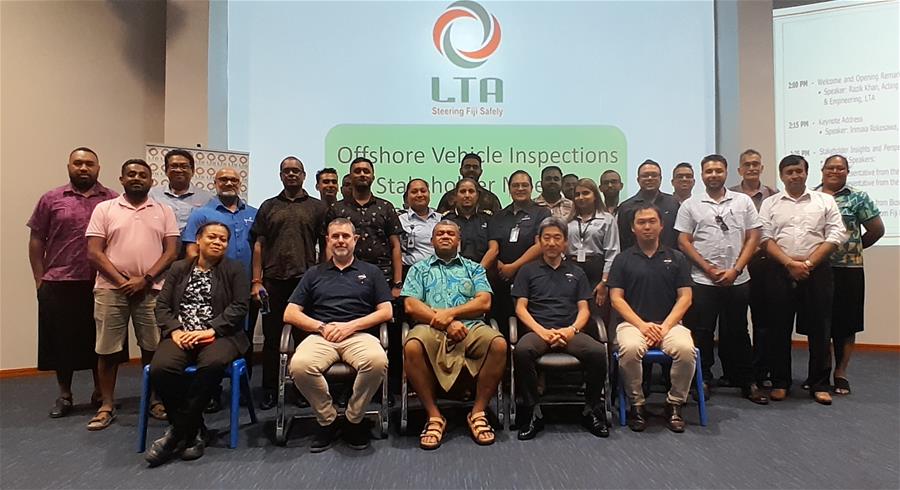SUVA, Fiji (20 January 2025): The Land Transport Authority (LTA) of Fiji has announced significant upgrades to its offshore vehicle inspection procedures, set to take effect on 5 February 2025. These improvements are designed to reinforce vehicle safety, ensure compliance with Fijian regulations, and increase transparency within the second-hand vehicle importation industry.
LTA Chief Executive Officer Irimaia Rokosawa emphasized the Authority’s commitment to improving safety standards and streamlining regulatory processes.
“Our collaboration with the Japan Export Vehicle Inspection Center (JEVIC) has led to the development of new protocols that will better identify safety risks, vehicle history, and adherence to Fijian regulations,” said Mr Rokosawa.
To further strengthen the inspection framework, Mr Rokosawa said the Authority would partner with several key agencies, including the Fiji Revenue and Customs Service (FRCS), the Fijian Competition and Consumer Commission (FCCC), the Consumer Council of Fiji, and Biosecurity Authority of Fiji (BAF).
“Involving these stakeholders ensures greater transparency, improved vehicle quality, and streamlined checks, which ultimately benefits both dealers and consumers,” the CEO said, highlighting the value of the multi-agency approach.
The revamped inspection system would also incorporate several technical improvements to enhance the reliability and accuracy of vehicle assessments such as onboard diagnostic checks, event data recorder (EDR) checks, paint thickness testing, recall checks and updated inspection certificates.
In terms of the Onboard Diagnostic (OBD) checks, the advanced technology will identify errors in a vehicle’s electronic, braking, or mechanical systems before importation, ensuring that any underlying issues are identified early, reducing potential safety risks for consumers.
“The introduction of EDR checks will provide detailed information about a vehicle’s accident history, including the severity of impacts, affected parts, and accident timelines. This will enable both dealers and buyers to assess the vehicle’s condition more accurately,” Mr Rokosawa said.
He said variations in paint thickness would also be analysed to identify potential repairs due to accidents or rust, offering valuable insights into the vehicle’s condition while vehicles flagged for recalls would need to have any identified issues resolved before being imported into Fiji.
“Enhanced certificates will provide comprehensive details on a vehicle’s mass, dimensions, and compliance items, promoting greater transparency. A key feature of the upgraded system is the launch of an online platform that will allow consumers to access detailed vehicle information using a Check Chassis Number and inspection sticker. This digital tool aims to empower buyers by providing reliable, accessible data,” Mr Rokosawa said.
In addition, the inspection framework for vehicles imported from Australia and New Zealand will transition from physical inspections to a verification process based on regulatory records. This change will result in a simplified one-page compliance report and significantly lower fees.
“The offshore vehicle/verification fee per vehicle from Australia and New Zealand will decrease to $F30.50, while inspections for vehicles from Japan will cost $F382.20,” the CEO noted.
“We want to ensure that Fijian consumers receive value for their money and are safeguarded from purchasing vehicles with hidden defects or safety concerns. The enhanced inspection process and new reporting tools will help create a fairer, more transparent marketplace for second-hand vehicles in Fiji.”
Mr Rokosawa reiterated that these changes were aimed at streamlining processes, reducing costs, and maintaining stringent safety and environmental standards. The Authority had also held a stakeholder consultation in December last year at the Fiji National University in Nasinu on these offshore vehicle inspection enhancements.
